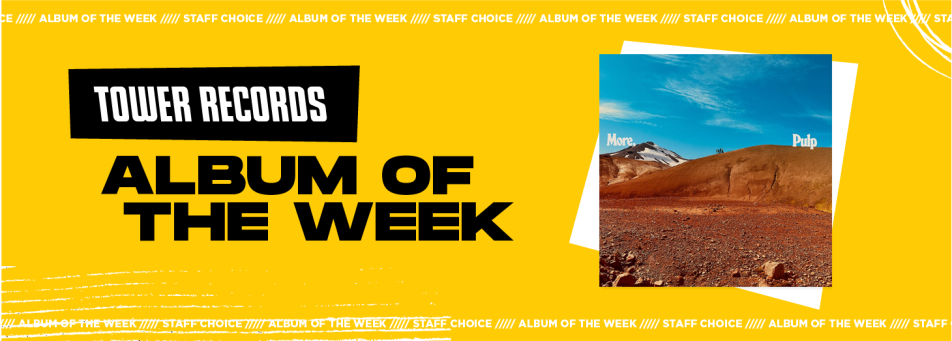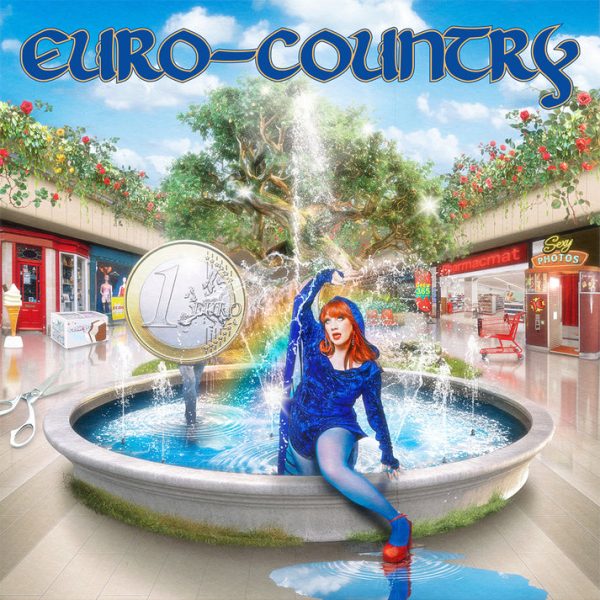Album of the Week: Pulp – More

Album of the Week: Pulp – More
“Oh, is this the way they say the future’s meant to feel?” goes the opening line of Pulp’s 1995 single Sorted for E’s & Wizz, a pointed yet playful critique of 90s rave culture. It ends with the anxiety-filled question, “What if you never come down?” But of course, everyone old enough to experience that era has come down, whether they were high or not. Crashed down, even. And those born since? In many ways, they’ve been born down.
It’s been 24 years since We Love Life, and now Pulp return with More, their first studio album since 2001, and 30 years since their cultural peak with 1995’s Different Class. In the decades between, the world has unravelled in increasingly chaotic ways: 9/11, the Iraq War, climate collapse, the financial crash, housing crises, a pandemic, the Russia-Ukraine war, and the ongoing horror in Gaza. We live in a state of endless acceleration, the future slipping through our fingers as our eyes remain locked on glowing screens. The announcement of More was met with genuine delight, unexpected, perhaps, but deeply felt.
Which raises the question, what does a Pulp album offer in 2025?
For many, it’s a form of escape, a chance to time-travel through music, back to when life felt fuller, and the future more promising. For a younger audience, it offers an entry point into a world they missed, part of a broader cultural fascination with the 1990s that mirrors that decade’s own obsession with the 60s. Two eras, 30 years apart, both viewed through rose-tinted glasses. Pulp, of course, have always played with nostalgia, borrowing heavily from the past at their creative peak. Their sound evoked post punk, synth pop, and indie before briefly aligning with Britpop, though even then, they felt like a band out of time, beamed in from another era, which given their relatively late rise to fame, they actually were.
Tying More back to 90s is its opening track Spike Island, named after the legendary 1990 Stone Roses gig that inspired Sorted for E’s & Wizz, soaked in acid, ecstasy, and myth. Over a disco inspired beat, Jarvis Cocker reflects on a past with triumphant energy, while referencing his band’s resurrection, singing “This time I’ll get it right.” It’s a perfect opener, bold, bright, and anthemic. It captures the same tidal pull as Common People or Disco 2000, drawing listeners into a collective yearning, for a time, a feeling, a flawed but vibrant spirit to live again.
Got To Have Love is another immediate standout. It’s impossible to ignore its strident, danceable disco rhythm, with Cocker’s insistent and impassioned vocal declaring, “Without love, you’re just making a fool of yourself.” Originally demoed back in 1999, the track builds with an inescapable fervour, even featuring one of those classic Cocker moments where the music subsides to reveal a whispered monologue, before erupting with a classy guitar solo and pulsing strings. Tina channels the lush orchestral pop of the 60s, recalling early Scott Walker. Its curious, humorous tale of obsession almost feels like a lost gem from Walker’s solo catalogue. As always with Pulp, the lyrics zero in on the minutiae of daily life, fleeting moments, unnoticed details. Cocker’s eye for the ordinary remains razor sharp, inviting us into a smaller, familiar world too often drowned out by the noise of everything else. In these quiet observations, Pulp offer their greatest comfort, pathos wrapped in humour, sadness softened by wit.
Grown Ups arrives with Clash like urgency, its guitar riff echoing the punk band’s apocalyptic London Calling. It confronts modern life’s absurd pace, framing its chaos within a refusal, or inability, to grow up. It captures a generation stuck in arrested development, priced out of the traditional milestones of adulthood and left to drift, unaided, in the aftermath of every major crisis. Musically, More is rich, varied and layered. On gentler tracks like Farmer’s Market, a clear highlight, Cocker shares a deeply personal memory, his first meeting with his wife, rendered with warmth and romantic clarity. These moments show Pulp at their most graceful. Cocker remains a singular frontman and insightful lyricist, balancing provincial detail with emotional nuance, humour, and self-deprecation. He writes in the tradition of British pop poets like Morrissey, only with more generosity, and far more grace in how he’s aged.
Likewise, Background Noise is a swooning, majestic track that finds Cocker reflecting tenderly, and melancholically, on a love that has faded. One line directly echoes past Pulp glories, “I can’t remember the first time, or the last time, or the way we got from here to there.” It’s followed by the devastatingly mundane, yet profound refrain, “Love turns into background noise, like this ringing in my ears, like the buzzing of the fridge, you only notice when it disappears.” Partial Eclipse is another gem, a dreamy, woozy track whose atmosphere evokes the cinematic melancholy of David Lynch and Angelo Badalamenti. Lyrically, Cocker connects the deeply personal with the cosmic, doing so with humour and restraint. There’s a studied brevity to his writing here that recalls the late David Berman or the gentle wit of Alan Bennett. The track closes with the line, “Going back to living in sheltered accommodation with sporadic central heating, looking for a clean mug whilst wearing a bobbly cardigan and odd socks.” It’s funny, bleak, tender, everything Pulp have always done best.
Closing track Sunset, a neat mirror to We Love Life’s closer Sunrise, is a quiet, folk based epic in which Cocker ruminates on the relentless monetisation of everything. Its message is simple, and perhaps the album’s core thesis, that real joy, away from the influencers, the algorithms, the shifting zeitgeist, lies in things that cost little or nothing at all. As voices and strings swell and fall away, Cocker delivers one final wish, “I’d like to buy the world some time. Some time, and some choice.”
Pulp’s first album in a quarter of century offers a reflection, a return, and a quiet kind of resistance. More doesn’t try to compete with the noise of now, it cuts through it with clarity, humour, warmth, and a genuine, emotional honesty that feels increasingly rare. For those who’ve grown up with Pulp, it offers a moment of connection, a reminder of who we were and maybe still are. For those coming to them for the first time, it opens a door to a world where the small things matter, where wit sits next to sadness, and where pop music still has the power to say something real. In a time when the future feels more unknowable than ever, More gently reminds us of the value of feeling anything at all, and that might just see us through.


